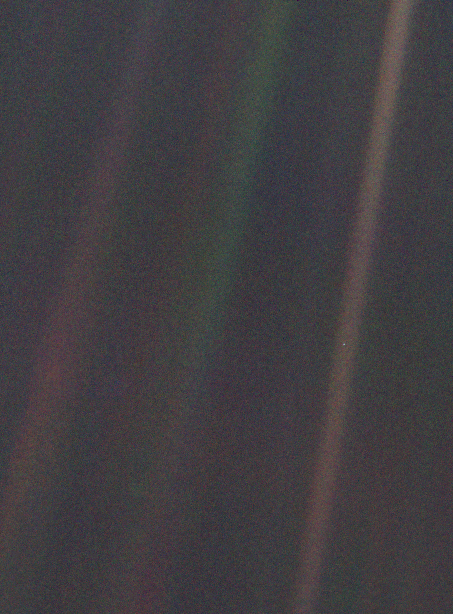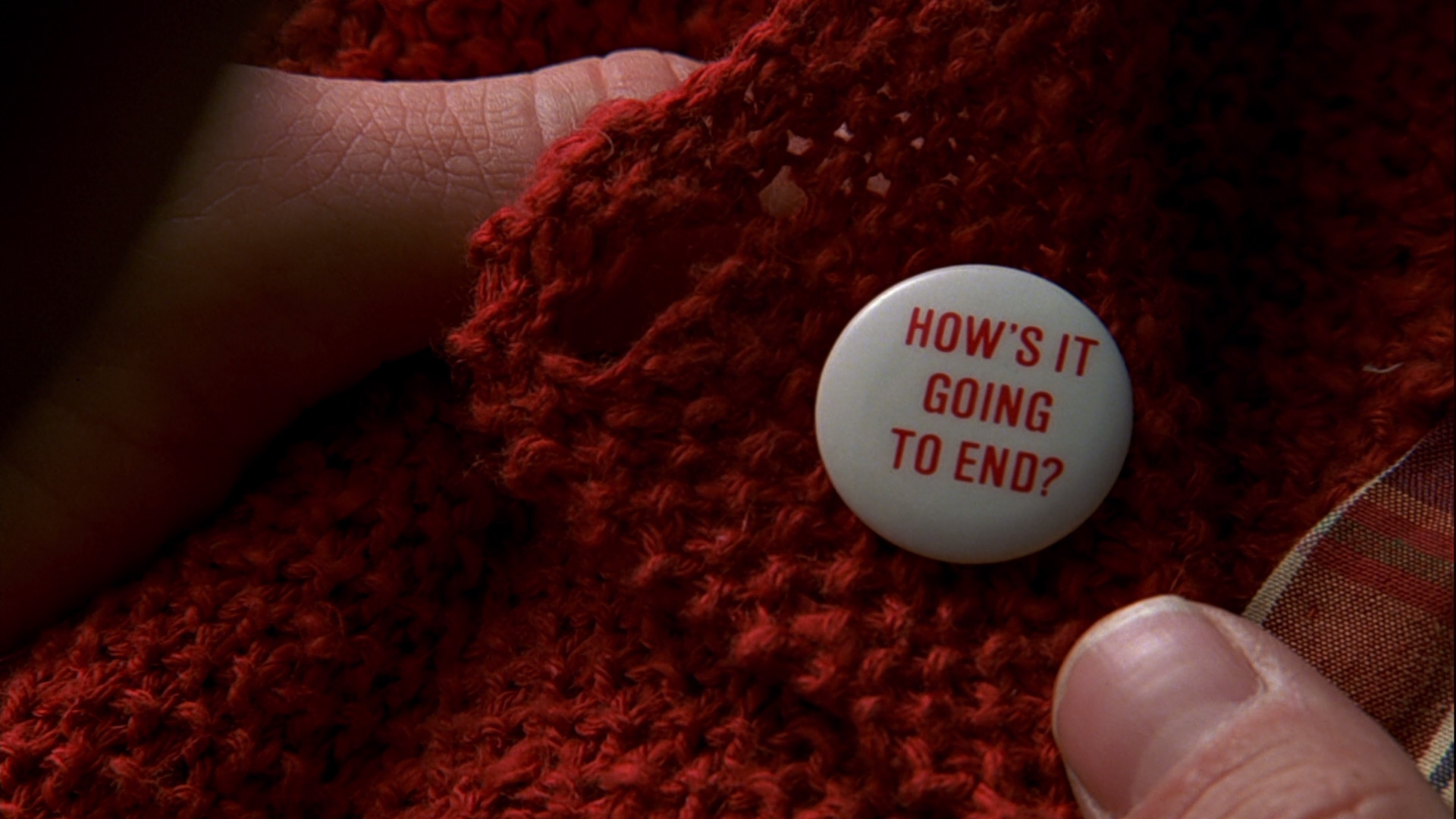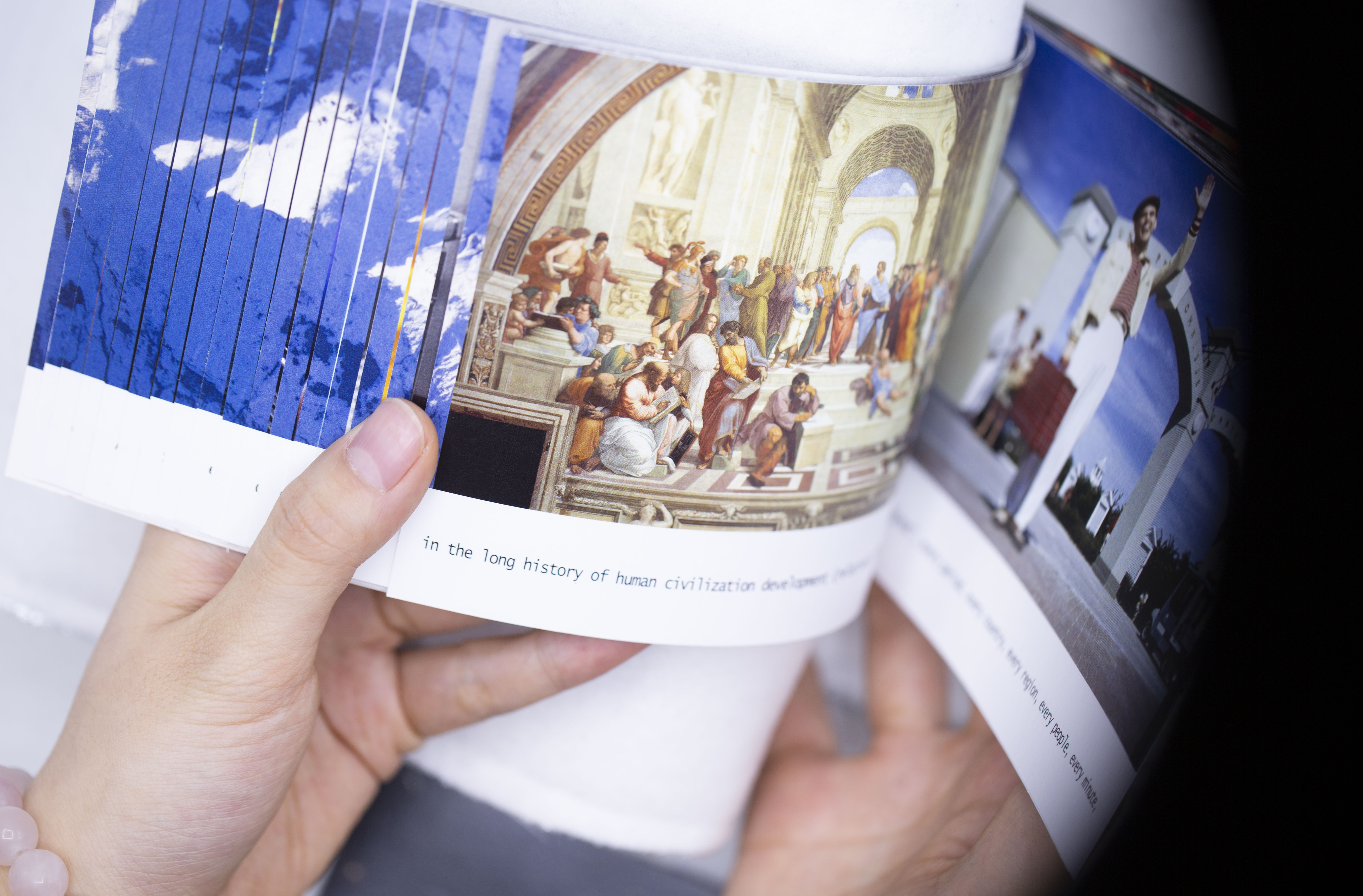
The Theory of Everything (2014)
A paradox—— We are so curious about ourselves so that we have infinite curiosity about the universe we live in. The sense of restlessness comes from the limitations of cognition, and the limitations are the most prominent features of our role in universe.

Pale_Blue_Dot (Seen from about 6 billion kilometers
-Carl Sagan , American astronomer:
Our planet is nothing more a grain of “dust suspended in the air” (1994).
From the constant curiosity about the universe, but not so much for the universe, for ourselves is more accurate, what we really curious about is ourselves, who am I? Where am I from? Where am I going? By chance, I learned The Anthropic Principle, and many people call it a useful logical nonsense, but I don’t think so.
AlthoughThe Anthropic Principle has not solved my fundamental problem (no one can, until now), it has also dispelled my doubts.
I have repeatedly considered it and collected a lot of information. Although this process is logical and rational, the result has played an important emotional role : Carpe diem.
This is what I hope to see from this book. It recognizes our existence and finally uses the principle of human choice as a starting point to actively explore the meaning of existence.

The Truman Show (1998)
Nihilism
If we are so unimportant, if our existence is so small, then any one of us, any kind of person we become - our success and failure, troubles, sorrow and joy, our ambitions, toiling and trying, all these build into our lives - how could that is important?
-American philosopher Susan Wolf wrote in “The Meaning of Lives”: “The possibility of trying to understand a point of view is that, a person’s life is actually meaningless.”
-John Updike:
We shun it (modern science) what we must know: our impermanence and small position in the universe… For centuries, we have been trying to reveal the huge, unimaginable smallness we cannot understand ourselves; under the terrible extension of geological time, compared with the endless galaxies, we are not worth mentioning… and at the core of the problem, the mad violence caused by mathematics is left in the heart. (1985)
-French philosopher Blaise Pascal wrote in “Pensées”:
It frightens me to think that my short life will be swallowed up by eternity in life and death, and that I know nothing of the small space I have occupied, and this infinite and vast universe knows nothing about me. The eternal silence of this infinite space and time awed me.
What attitude should we take?/ What should we do?
Should we face this with despair and nihilism?
-The British ethical philosopher Bernard Williams said:
“There is no objective value of things” is the result of a naturalistic, atheistic worldview. “Subjective value is the only value that exists.”
-Simon Blackburn, a philosopher at the University of Cambridge, said in “Being Good” . (2001) We ask, is life meaningful? His answer was simple: “for whom?”
-The modern philosopher Guy Kahane , “Our Cosmic Insignifigance” (2013): If the objective value does exist, then the universe will still exist, no matter how big and old and silent it is. The size and age of the universe have nothing to do with this problem.
Our importance:
If we are the only intelligent creatures, then we have considerable cosmic importance: we are the only shining diamond, surrounded by nothingness, like the incandescent light in the river Styx.
What makes us feel small is that the universe perspective contains too many things, and the importance of things will be reduced because of the expansion of the reference system.
The trouble is that, we can’t determine this now: we don’t know what we are with, or who, sharing the universe.

What does death mean?
We know that once we die, the universe will continue to function as if nothing had happened.
What we care most about—the relationship we have with people, our plans and goals, the experiences shared with others, social justice, the pursuit of knowledge, creativity and appreciation of art, music and literature, the future with us and the fate of other species - does not rely on us, or any degree of control of this huge but unrelated universe. We may have no power at the level of the universe, and therefore, at this level, it is not important.
But having such power and importance doesn’t make much.

The Study Of Anthropic Principle

My Summarize
Are we important to the universe? Who am I for the universe?
I am an ordinary person, and everything I am born with seems to be of great probability: I have a mass appearance, mass body, mass intelligence, mass talent. I am special. My existence means that my grandfather, grandfather’s grandfather and grandfather’s grandfather’s grandfather and other generations of ancestors survived in their own time to the moment when they left their genes, which can be traced back thousands of years, tens of thousands of years and even the beginning of life. My ancestors, generation after generation, were the lucky ones who survived in poverty and hunger, war and chaos during the Permian and Ordovician extinction periods. According to The Butterfly Effect, if the physical constant of the universe changes slightly, the entire human being cannot survive – so my existence means that the Gravitational constant is exactly G=6.67×10-11N·m2/kg2, Planck constant is exactly h=6.62607015×10^(-34) J·s, and the Fine-structure constant is 1/α≈137.03599976… So my chance of living in the world are negligible.
Why does the universe fit us so coincidentally?
The number of universes is very large or even infinite, so there is a very large probability or there must be a universe suitable for us to live in. All forms of evolution are “really” exist in a large enough number of parallel universes that we can only live in and are living in a universe that allows us to live in, but the universe has not evolved “for"us. However, according to the Strong anthropic principle (SAP), if a universe has not evolved any intelligent life, then it lacks “observers”, so in principle there is no way to prove or disprove it, the universe “does not exist”. The existence of the universe must have qualities that allow the observer to exist at a certain stage in history.
And the human perspective is only relative to our own, we are currently unable to know what other forms of intelligence exist, and since the length of the signals we can send is limited to the Milky Way, our existence is also relative to the physical world that we can perceive ourselves. When Copernicus and Einstein made bold assumption based on the common sense and theorems of physics, their intelligence went further than physical existence. In human efforts to use wisdom to ask questions and try to resolve, even for our own existence will still mired in metaphysics, we can realize that materialism is not necessarily is all right, but also be not idealism is ridiculous, because wisdom seems to be infinite, even if one day we can perceive the existence of other intelligent life, may be we can’t completely understand.
Under the level of cognition, humans clearly feel how small they are to the universe, even though we have been in progress. But in the long history of human civilization development (relatively long) in the process, we can still feel “great”, every period, every country, every region, every people, every minute, every second, we are able to feel “joy, happiness, sadness, pain, lonely… “These forces are so great that we can hardly imagine, the world around us in our vision is big and small, the sun and moon, mountains and rivers, flowers, birds, insects and fishes… In the moment of “being”, we get love and create life… Civilization, however, I would like to dedicate this book to those who pursue human civilization: killing is not civilization, evil is not civilization, destruction is not civilization, fraud is not civilization, corruption is not civilization, violence is not civilization, fornication is not civilization, drug is not civilization, decadent not civilization, paranoia is not civilization, ignorance is not civilization, selfish is not civilization… With
these phenomena, human beings are hard to call civilized. The so-called civilization today, if it is grudgingly called civilization, it can only be regarded as a primary civilization. In a civilized society, warming love spreads in every cell of every member of the society, every member of society has eyes that can see the truth. In the long history of human evolution, the development and utilization of material is neither the first nor the last. It is just a stage in the process of human evolution. Obsessed with material and stubborn in tools, really hinder the evolution of human beings and the upgrading of human civilization. However, the short life of each individual is so limited that civilization can only develop when the wisdom of all mankind is combined to work towards a more “progressive” direction.
According to the Final anthropic principle (FAP), the individual consciousness survives in the other parallel universe that of this current dead individual has split off, so that when an “consciousness” appears, it will never die – you, are immortal. There is a line in The Art of Getting By (2011) : “What are we living so hard for?” We don’t have to fear death, but we should fear that death doesn’t make sense – or that the rest of our lives, which are still alive in the parallel universe that split up at the moment of death, no longer make sense.

Book

Book

Book
